What Are the Causes of Low Energy Levels and Fatigue?

We live in a world where many people are struggling with fatigue and do not properly understand its causes. The sad part is that if you talk about your tiredness, people will call you lazy and won’t understand your physical condition.
Unfortunately, lack of energy is not listed on the medical conditions, and if you ask a doctor for a solution, he will probably tell you that we are all tired and maybe you expect too much from yourself! Don’t be too hard on yourself!
But in fact, lack of energy is a serious problem and has a direct impact on our physical and mental condition. If the weakness continues untreated, the body will not be able to repair its organs, and it will end up in early aging and a variety of other diseases. On the other hand, you need to be energetic to succeed in social relationships, in your love life, to socialize, to laugh, and to make others laugh.
Many aspects of our personality, behavior, and even our thoughts are directly related to our energy level. The image of life is wrong in the eyes of those who have a low energy level.
It’s even possible that some people with extreme fatigue, give up normal life and lose interest in social activities and sink themselves in solely spiritual activities thinking that living a normal life is in vain. But in fact, this is not spirituality, they are not aware of their condition and how depressed they are.
People with low energy levels are usually bored and sensitive, and they do not have enough energy to deal with their problems, so they quickly become nervous and put the blame on others. Lack of energy can affect all parts of the body, from the central nervous system to sexual desire, meaning that when there is not enough energy, any part of the body may not function properly.
How Does the Human Body Produce Energy?
Thyroid and Adrenal glands are responsible for producing more than 98% of the energy in the body. The Thyroid gland is a butterfly-shaped gland located on the front of the neck and about the size of a plum. Adrenal glands are located on top of each kidney. Each human has one Thyroid gland and two Adrenal glands.
The Adrenal glands release glucose into the bloodstream, and then the Thyroid gland converts glucose into energy and ATP (adenosine triphosphate) and provides it to all cells to function. The Thyroid gland acts like a spark plug in a car's engine, causing the fuel to burn and converts it to energy.
Thyroid and Adrenal activities determine the rate of metabolism. If they are overactive, the body's metabolism rate will be fast, if they are normal, the metabolism is normal as well, and if they are underactive, the metabolism slows down.
In fact, people with low energy levels have a slower metabolism. In other words, they have Hypothyroidism or Adrenal fatigue, which in most cases, is the latter.
Adrenal Glands
As mentioned above, the two Adrenal glands are 3 to 4 inches in diameter, each located above each kidney. These glands produce various hormones such as Adrenaline, Cortisol, Aldosterone, Estrogen, Testosterone, Progesterone, etc. that each of them plays essential roles in the body, including energy production, blood sugar and metabolism regulation, coping with stress, and many other vital activities. So, you may feel a sensation of pressure in the kidneys area during severe anxiety, which is a sign of pressure on these glands.
Common Adrenal Burnout symptoms include weakness, fatigue with mild depression, sugar craving, low blood pressure, low blood sugar and low body temperature due to the low level of Cortisol.
Secondary symptoms in advanced stages of Adrenal fatigue include digestive disorders, inability to control stress, irritability, allergies to certain foods, muscle aches and pains, recurrent infections, hair loss, and impotence.
If you are one of those people who consider yourself “NOT A MORNING PERSON” which means when waking up in the morning, instead of feeling fresh and lively, you feel lethargic, numb, and depressed, and as the day goes on, this situation is resolved, you probably have weak Adrenals.
In people with Adrenal fatigue, these glands do not function properly in the morning, and with the passage of time or use of stimulants such as coffee and tea, the glands become more active, so fatigue and numbness disappear.
Mental Symptoms Related with Adrenal Glands Weakness
Cortisol is one of the hormones secreted by Adrenal glands, which is a natural stimulant. When these glands are weakened, Cortisol is secreted less than average, so happiness and liveliness are replaced by a sense of vitality, fatigue, and depression. For instance, people who take anti-inflammatory derivatives of this hormone, such as Cortisone ampoules, usually feel happy after injection, or in another example, you may have noticed that athletes are usually more energetic than other people and that’s because exercise increases the level of Cortisol hormone.
People with Adrenal fatigue may face problems in their marital life as well. Impotence and excessive sleepiness are common symptoms of failure of these glands as well.
Factors that Weaken the Adrenal Glands
Stress
Stress is a very important factor in weakening the Adrenal glands. Stress in any form, from emotional and intellectual problems to heavy physical activity and living in crowded and polluted cities, can all cause Adrenal depletion.
Insomnia
Adrenal glands recovering and healing happen during sleep. During the day, one primarily uses the sympathetic autonomic nervous system, which is associated with spending energy and tearing down the body. This is balanced by the parasympathetic autonomic nervous system, which its task is to regenerate tissues and energy recovery. The parasympathetic system activates when one is at rest or asleep. For this reason, sleep is called “The Healing Time”, and If you do not have enough sleep, Adrenal gland regeneration and activity can be affected.
Copper Toxicity
When the Adrenal glands become weak, Copper accumulates in the body, and as its level rises, physical and psychological problems associated with it increase. Vice versa, Copper toxicity (for example, due to excessive consumption of Copper-rich nutrients) is one of the important reasons for Adrenal fatigue. It causes the deficiency of Magnesium, Zinc and vitamin C in the body.
For more information, please read Copper Toxicity Article.
Poor eating habits
Most dietary plans lack the minerals and vitamins that the Adrenal glands need to function with, including vitamins A, B, C, E, and minerals such as Manganese, Zinc, Chromium and Selenium.
People tend to eat fast food because of their busy schedules and lifestyle. These foods are usually high in calories and low in nutrition. Also, the use of hormones to feed livestock and poultry and growing fruits, has reduced the minerals and vitamins in these products. Most food is grown on depleted soils, processing and refining further deplete nutrients.
Stress also increases the body's need for the nutrients listed above. Unfortunately, today's life has become more stressful and sadly the quality of food has become less valuable than ever before.
Toxic Metals and Chemicals
Our body is exposed to so many kinds (thousands) of chemicals and toxins that are in the air, water and foods which all play important roles in weakening the Adrenal glands. Most people are not aware of the adverse effects that many drugs, such as antibiotics, painkillers, etc. have on liver and Adrenal glands. That’s why I always encourage people to use dry saunas to eliminate toxins and remove unwanted waste from the body.
For more information, please read Toxic Metals Article.
Various Types of Chronic Infections
Chronic infections also weaken Adrenal glands. For example, the reason we feel tired during the cold is because much of the energy produced by the Adrenal glands is supplied to the immune system to fight off viruses. Countering viruses and bacteria consumes far more energy than daily physical activities, and when the infection in the body becomes chronic, it can put pressure on the Adrenal glands and eventually weakens them. These include HIV, hepatitis, and chronic sinus infections.
Heavy Sports and Physical Activities or Excessive Sexual Intercourse
Exercise and having a balanced sexual intercourse can support healthy Adrenal glands and release more hormones such as Testosterone, Cortisol and boost happiness. But exercise and sexual intercourse increase the body's need for certain nutrients such as Protein, vitamins B, C, E and minerals such as Zinc. If we do not get enough of these nutrients from our diet or supplements, we will damage these glands.
Drinks and Stimulant
Overuse of stimulant drinks such as tea, coffee, sugar and alcohol can damage the Adrenal glands. These stimulants give temporary energy but ultimately weaken the Adrenal glands and push us to more consumption. This is a very important point to keep in mind, especially for those who are addicted to stronger stimulants such as cocaine. One of the common causes of people's inability to quit addiction is Adrenal fatigue, which unfortunately many physicians do not know about, and simply assume that patients are cured right after the effects of the stimulant or opioid are removed from the body.
Congenital and Hereditary Weakness
Many children are born with weak Adrenal glands. This is not a genetic problem but due to the deficiency or overload of certain minerals in the mother's body, these children are born with low or unbalanced mineral levels.
Diagnosis and Treatment of Adrenal Gland Weakness
Unfortunately, when people complain of problems which are usually due to Adrenal weakness like fatigue and depression, most doctors do not ask the right questions or do not take the related tests from the patient. Answers provided are usually advising to go on a trip or to take antidepressant pills! In cases where a person is sexually impotence, prescribing hormones can ultimately make the situation worse.
Symptoms such as fatigue and low blood pressure, a tendency to use stimulants such as coffee or tea for more vitality, depression, joint pain, a desire to eat sweets or salty substances, frequent cramps and muscle weakness can all be signs of Adrenal gland weakness.
A Very Simple Test to Detect Adrenal Gland Weakness
The doctor will measure the patient's blood pressure when he is lying down, then the patient will immediately rise, and the doctor will measure his blood pressure again. Blood pressure should go up, but in people with Adrenal fatigue, the pressure usually drops, and the person feels weak and slightly dizzy. This is a simple, basic test for the diagnosis of Adrenal glands weakness and is not necessarily true for everyone.
Blood tests that can help detect Adrenal glands weakness are: DHEAs, Testosterone, Cortisol, Na, K. It is noteworthy that in the early stages of Adrenal gland weakness, blood tests do not correctly identify the problem.
Different Stages of Adrenal Fatigue
1) Temporary Overworking: Some people may initially develop overactive Adrenal glands. This procedure can go on for months or even years and after the body is depleted of the minerals and vitamins needed by these glands, the page turns, and they (the glands) become weak. This is more common in athletes or people with too much sexual intercourse who do not have enough rest and nutrition to meet the body's needs for regeneration. These people have been exercising for months or even years or engaging in sexual activities, but suddenly, their body condition change completely in a short amount of time and they develop impotence and experience lack of energy. At this stage “They're burned out”!
2) Primary Stage: It is a condition that a person has a mild Adrenal weakness but does not experience specific symptoms, only feels the problems in times of insomnia or stress.
3) Semi-advanced: This stage occurs months or years after the primary stage. In this case, the person needs more rest and sleep to be able to do his daily tasks. Sometimes he experiences depression and in terms of energy levels, some days he is normal, other days in low energy mode and bored.
4) Advanced: At this point, the energy level declines greatly, the person becomes depressed, impulsive, bored and isolated, and experiences most of the symptoms described in this article.
5) Addison’s Disease: In this disease the level of Cortisol and Aldosterone hormones reach the lowest and the person experiences severe symptoms such as extreme fatigue, severe hypotension, dizziness, muscle aches, changes in skin color, etc. Some people will not even be able to walk for more than a few minutes. This condition is also called Adrenal crisis that if left untreated, it can cause death.
In some people, Addison's disease develops over time with further weakening of the Adrenal glands, but in others, it can occur suddenly. Its causes include physical or psychological shock to the person or exposure to toxins and toxic metals.
Adrenal fatigue can be one of the major factors to many diseases including MS, central nervous system problems, heart problems and many behavioral disorders of all ages.
Treatment
For the treatment, first, blood tests should be done to measure hormones, electrolytes, minerals and vitamins and according to the results, a treatment plan is recommended. Complete treatment of this disorder usually takes from 6 months to 1 year, depending on its severity.
Reading this article can be a start for changing your life quality and understanding more about the relation between your body and psyche. Most people are not aware of how their diet and lifestyle affect their physical and mental health. I myself had Adrenal gland weakness many years ago and unfortunately no physician or even myself had a proper understanding of the causes of depression, fatigue and other problems I used to cope with. This, led to further research of the biochemistry of the body, also understanding the relations between body and psyche, finally leading to treatment of myself and thousands of other patients to date.
For information on how to get started with us, please click here.
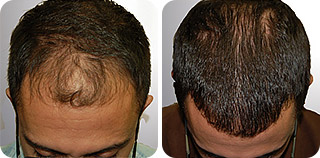 Mr. H A, Aged 28After 11 Months
Mr. H A, Aged 28After 11 MonthsI had dandruff since the beginning of the time, and unfortunately, in the past years, hair loss was added to it, and the front part of my head was out of hair. After treatment, dandruff and hair loss were wholly gone, and hair on the front part of my head started to grow again.
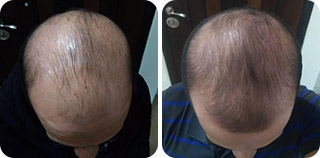 Mr. M S, Aged 35After 6 Months
Mr. M S, Aged 35After 6 MonthsAs you can see in my photo, I lost almost all my hair. After 6 months with Dr. Nasirzadeh's program, a lot of thin hair is growing on my head. I am very happy and hope that more hair will grow as I continue my treatment. Thanks to Dr. Nasirzadeh.
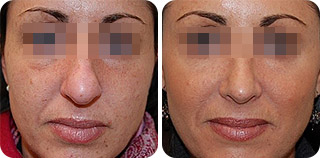 Ms. M A, Aged 42After 3 Months
Ms. M A, Aged 42After 3 MonthsWith Dr. Nasirzadeh’s recommendation, first, I did a blood test then I got my program. He advised me some supplements, creams and solutions. The spots on my face have faded, the puff under my eyes are also gone and in general, my skin is younger and brighter. I’m completely satisfied with the treatment.
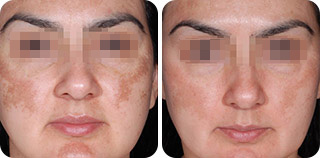 Ms. Zh K, Aged 29After 3 Months
Ms. Zh K, Aged 29After 3 MonthsThe supplements and creams that Dr. Danial recommended to me had a great effect on my skin, I’m satisfied with the result and I will complete my treatment with him for the desired result. Special thanks, doctor.
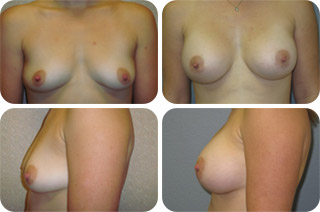 Ms. J, Aged 27After 3 Months
Ms. J, Aged 27After 3 MonthsA friend of mine introduced Dr. Nasirzadeh to me. Some blood tests were needed to begin the program, and I sent him the blood test reports. He sent me a program that included two supplements, one multivitamin and the herbal Breast Enhancement, also a moisturizer to prevent skin cracks. I was advised to take them for 3 to 4 months until my breasts reached the desired size. I am now at the end of the third month. My breasts have become bigger and are in better shape.
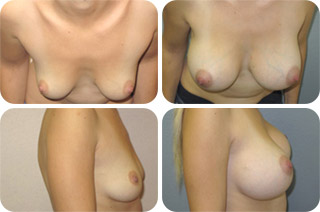 Ms. Z, Aged 25After 3 Months
Ms. Z, Aged 25After 3 MonthsDr. Nasirzadeh gave me a great program. One cream and two supplements recommended based on the results of hormonal tests. The result was what I wanted and I'm glad that I was under his treatment.
 Mr. E J, Aged 34
Mr. E J, Aged 34I had chronic sinusitis for many years, and I had to take antibiotics for that. My problem always recurred in the cold season, and it was never completely resolved until I started treatment with Dr. Nasirzadeh. My program included a number of supplements and recommendations that after a few weeks not only completely cured my sinusitis but also increased my energy level. Thank you from the bottom of my heart, Dr. Nasirzadeh
 Ms. R Y, Aged 32
Ms. R Y, Aged 32I got mild Covid-19 and isolated myself at home. I felt very tired, and my body ached, so I took an online program from Dr. Nasirzadeh to boost my immune system. After three days, I feel better, and the dizziness and other symptoms have decreased. I also took two separate programs for my parents to strengthen their immune system too.
